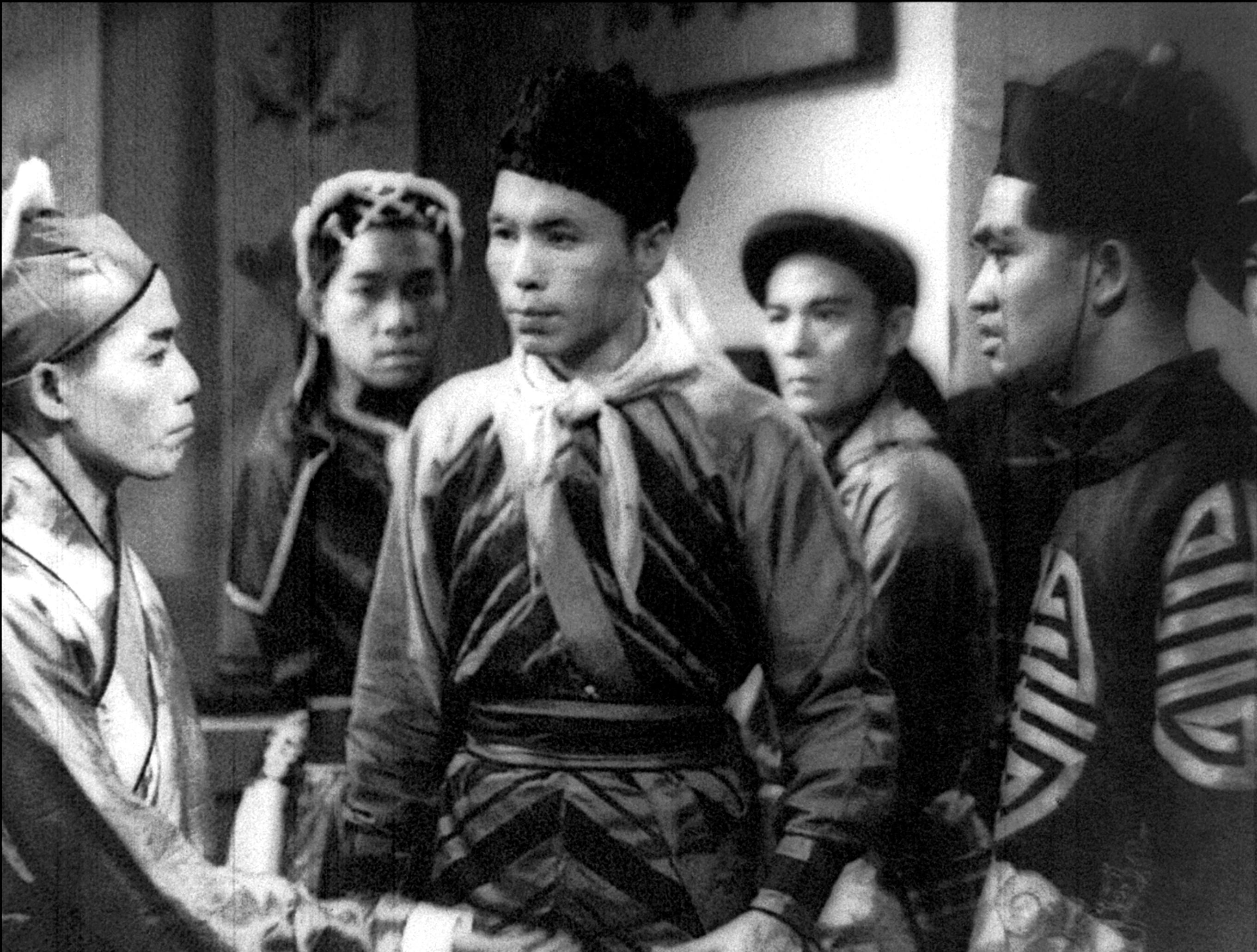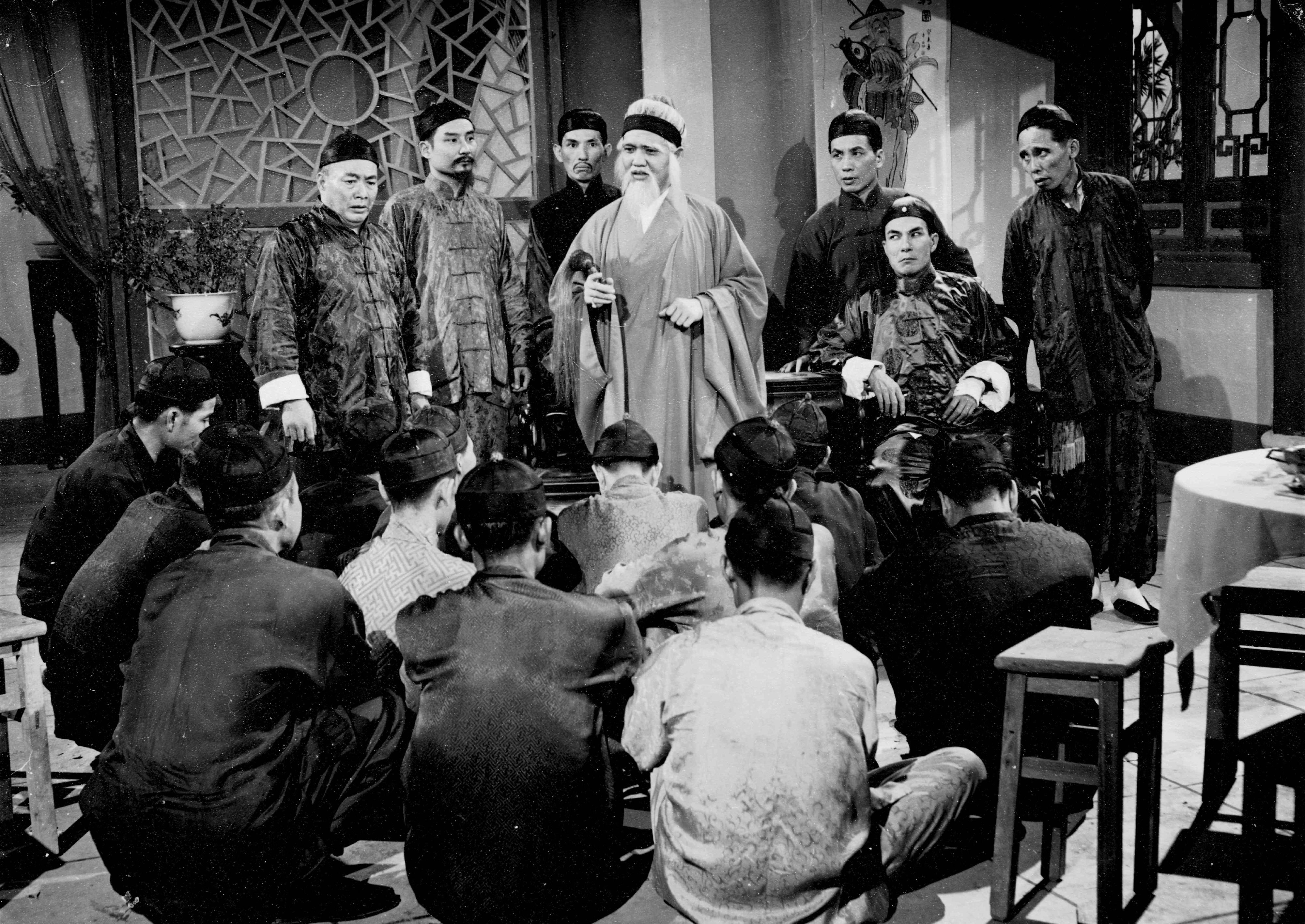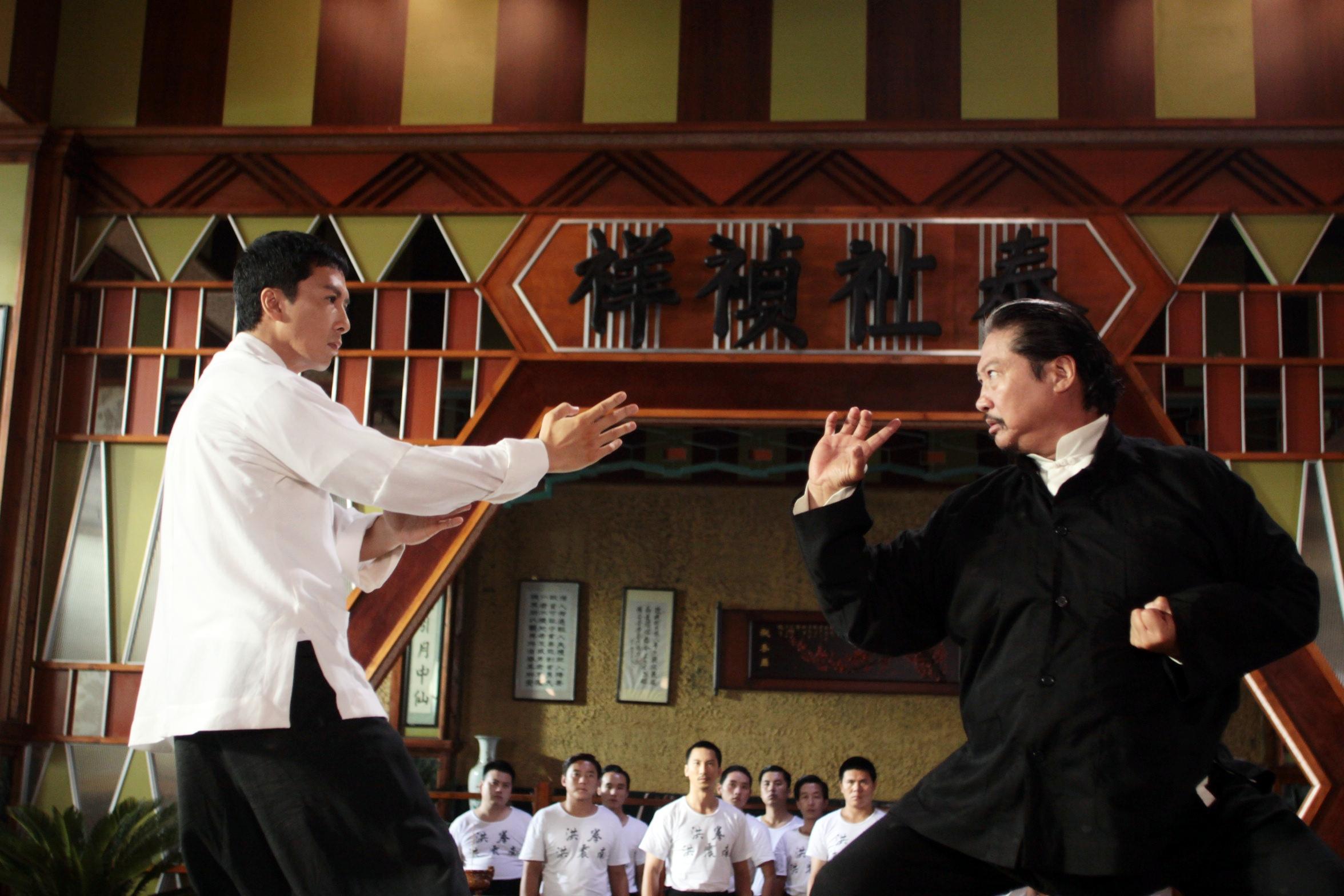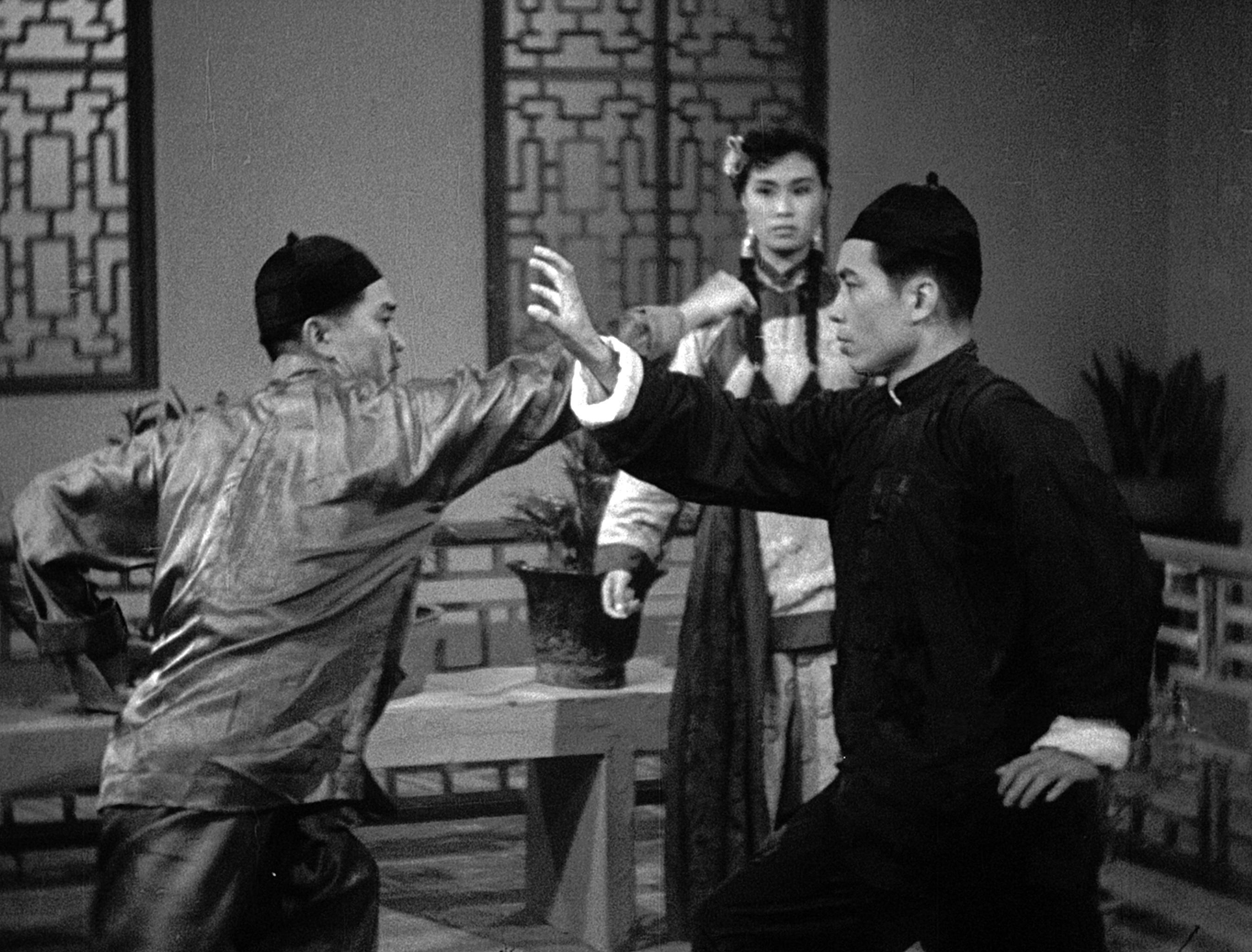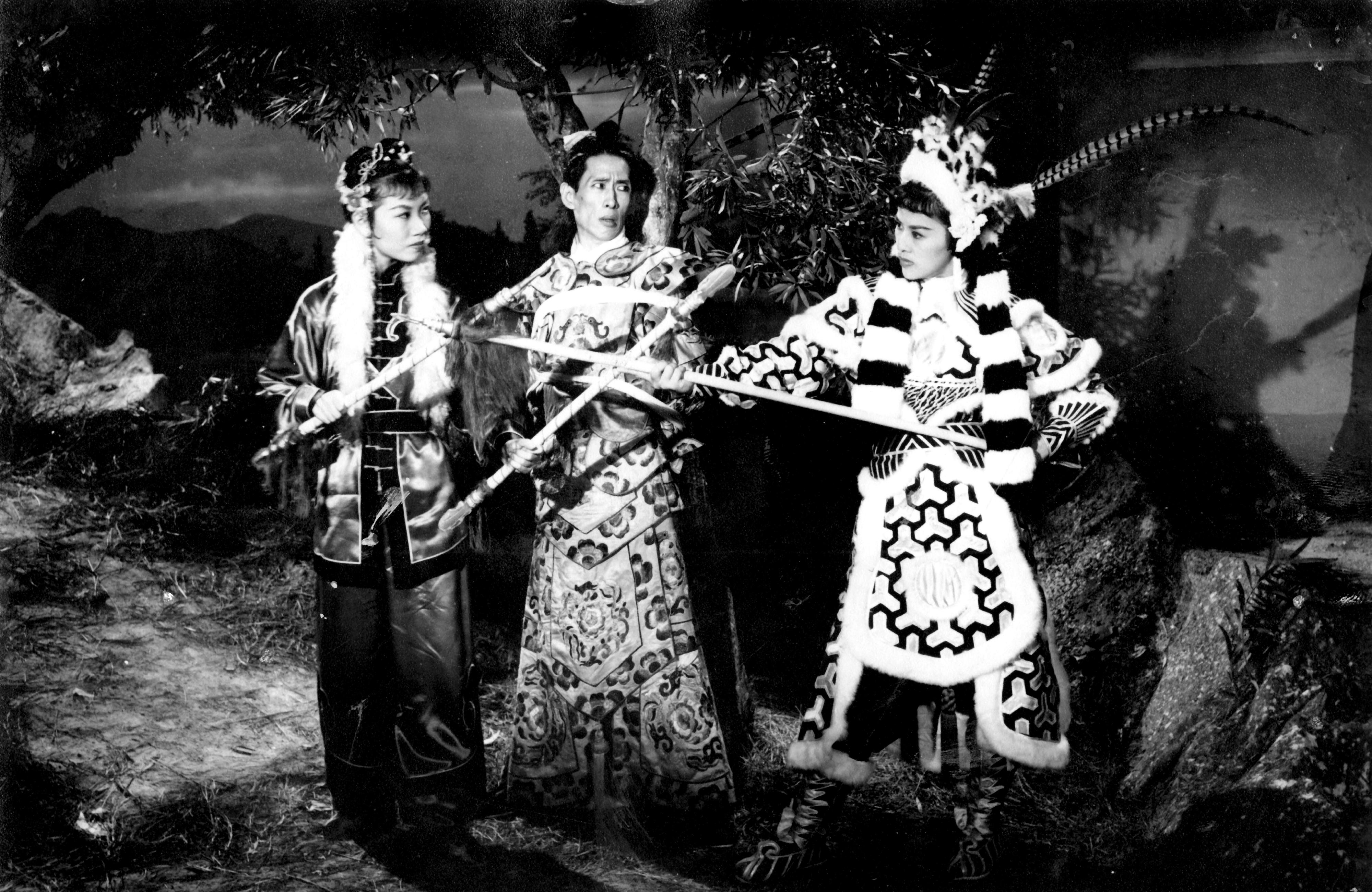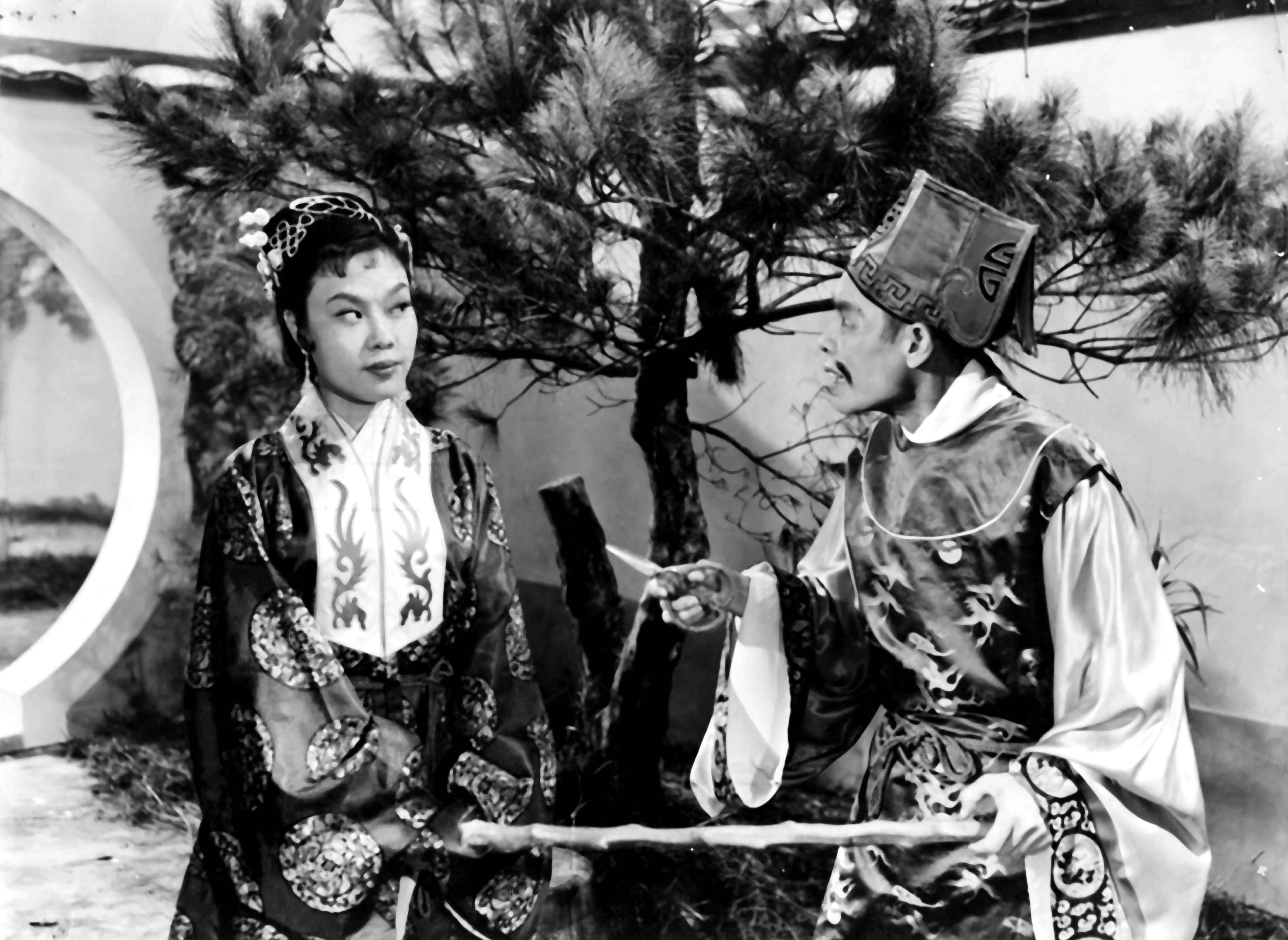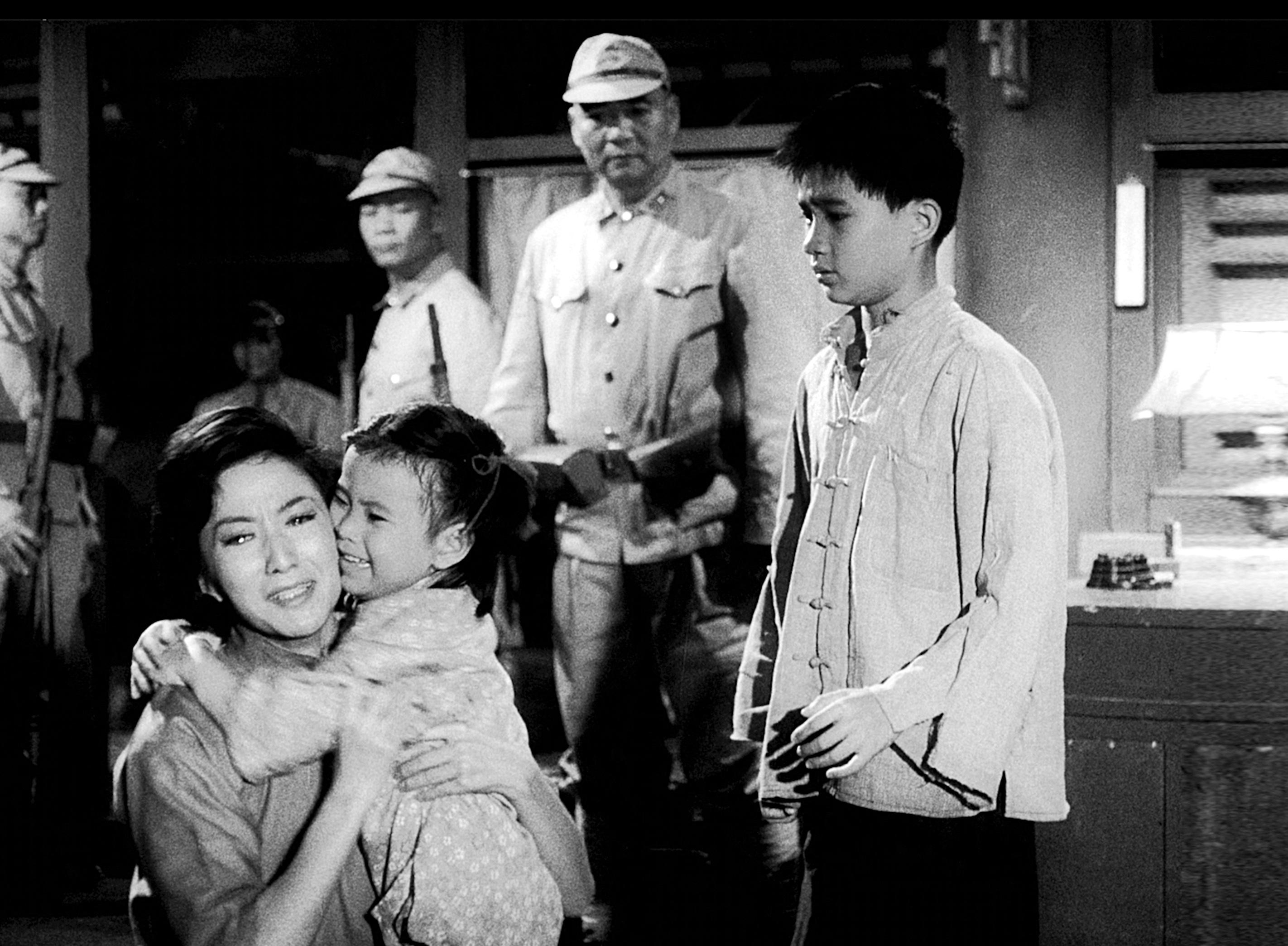Film Archive's "Archival Gems" series to create dialogues across time (with photos)
******************************************************************************************
Hong Kong's wuxia and kung fu films have developed diverse genres and focuses over the years. For example, "Five Great Heroes from Shaolin" (1951) and "The Legend of Zu" (2001) themed on swordplay fantasies; "The White Crane Hero" (1956) and "Ip Man 2" (2010) revive legendary martial arts heroes; while "Champion Lion Dancer Leung Foon's Big Fight at Tiger Valley" (1958) and "Gallants" (2010) depicts the bond between master and pupil.
Cantonese opera films are also one of the special genres of Hong Kong movies and there are many masterpieces of Cantonese opera films found in the commercial-driven market. Both the luogu (gong-and-drum) film "Law Tung Conquers the North" (1957) and "Hu-Du-Men" (1996) starred by best actress Josephine Siao Fong-fong added modern elements into the films, with the former incorporating a romantic comedic plot into the costume drama, while the latter features the struggle of a Cantonese opera actress in a modern setting. Other masterpieces include the opera classic "Butterfly Dream" (1956) and "The Mad Phoenix" (1997) featuring the life of Cantonese opera talent Kong Yue-kau.
Moreover, the film culture of the Mainland and Hong Kong affect each other. Examples of movies directed by a Hong Kong director and successfully combining the elements from both places include "Operation Child Hunt" (1967), which pays attention to character development and thrilling scenes; as well as "The Taking of Tiger Mountain" (2014), a movie about the fight against bandits directed by Tsui Hark.
"Operation Child Hunt" and "The Taking of Tiger Mountain" are in Putonghua and other films are in Cantonese. "Champion Lion Dancer Leung Foon's Big Fight at Tiger Valley", "Law Tung Conquers the North" and "Butterfly Dream" are with Chinese lyrics; "The Legend of Zu", "Five Great Heroes from Shaolin" and "The White Crane Hero" are without subtitles; and the remaining six films are with Chinese and English subtitles.
All screenings will be accompanied by post-screening talks conducted in Cantonese. Speakers will include Matthew Cheng, David Chan, Lau Yam, Shu Kei and Eric Tsang Siu-wang. Admission is free.
Tickets priced at $55 are now available at URBTIX (www.urbtix.hk). For credit card telephone bookings, please call 2111 5999. For programme details, please call 2739 2139 or visit www.filmarchive.gov.hk/en_US/web/hkfa/pe-event-2022-tat2pt2.html.
In order to comply with the requirements stipulated in the Prevention and Control of Disease (Requirements and Directions) (Business and Premises) Regulation (Cap. 599F) and relevant requirements of administrative instructions, members of public are required to scan the "LeaveHomeSafe" venue QR code with their mobile phones/devices before being allowed to enter the HKFA for necessary contact tracing if a confirmed case is found. In accordance with the Prevention and Control of Disease (Vaccine Pass) Regulation (Cap. 599L) and relevant requirements of administrative instructions, all persons entering the venues under the management of the LCSD must comply with the relevant requirements of the Vaccine Pass. According to the latest requirements on the Vaccine Pass announced by the Government, all persons whose Vaccine Pass QR code is displayed in red or amber are not allowed into the HKFA.
Ends/Friday, November 4, 2022
Issued at HKT 15:00
Issued at HKT 15:00
NNNN





